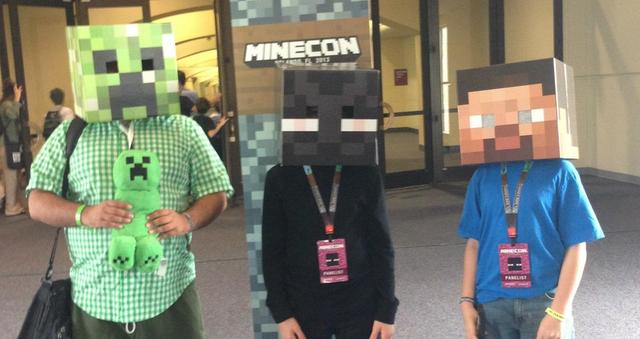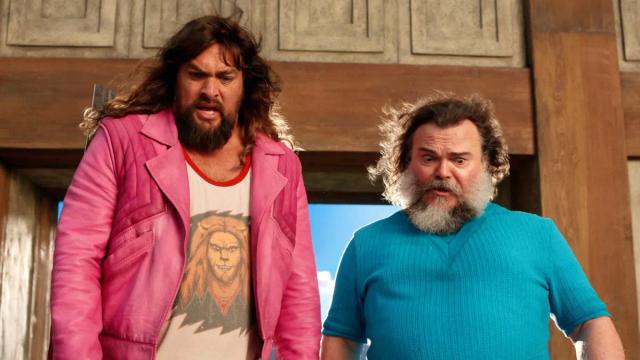If you click on a link and make a purchase we may receive a small commission. Read our editorial policy.
Strange New Worlds' Trial of Number One speaks to my experience as a gay Catholic priest
Sometimes pop culture helps us see ourselves

Recent years have seen a lot of work done to make queer stories on television both more varied and complex, and genre storytelling has been very much at the forefront of that movement. The Arrowverse and other DCEU TV shows featured multiple queer characters and queer characters as the leads. On Star Trek: Discovery, where almost half of the main characters are openly queer, we've gotten stories exploring everything from gay parenting to being in relationship when you’re growing in different directions.
Last week’s episode of Star Trek: Strange New Worlds showed a different kind of complexity, one that I was surprised to discover spoke to my own experience as a gay Catholic priest. In “Ad Astra per Aspera” (“To the Stars through Hardship”), Una Chin-Riley (Rebecca Romijn), aka “Number One,” is facing a court martial because, when she applied to Starfleet some 25 years earlier, she didn't reveal that she had undergone genetic modifications as a child, which Starfleet prohibits. Though her modifications were simply the custom of her race, the Illyrians, and she's led an exemplary, unblemished career, she still has had to spend her entire adult life hiding her identity.
On the surface, it seems like a pretty standard queer story. But what makes writer Dana Horgan's script special is that she brings in another Illyrian character, lawyer Neera Ketoul (the incredible Yetide Bataki), who has known Una since they were young. And to Neera, Una is neither a hero nor a victim, but someone who abandoned her people in order to have the life she wants. "It must be nice," she tells Una. "Some Illyrians have modifications they can't hide, and some of us refuse to." And Una acknowledges as much herself: "I should have done better," she tells Neera. "I didn't stand up when I should have."

It was about two years into my training as a priest that I began to realize that I was gay. Unlike many seminarians in this situation, I found myself in a context where I was encouraged to accept and celebrate who I was rather than repress or fear it. So I kept studying, and happily so.
But meanwhile, many queer Catholics were hearing from the pulpit that there was something wrong with them. Catholic school teachers and parish employees were getting fired simply for being queer. Today, though it is illegal to discriminate against queer people in the United States, recent Supreme Court decisions have given religious institutions almost total protection against prosecution. Anyone who works in a religious institution is able to be designated as a “minister” of the faith, whether they’re a youth worker, the organist or the janitor, and can be fired simply on account of their orientation.
I knew all this, and still I became a priest without coming out. In part, I accepted what I had been taught, that my orientation was not for public consumption, that it might be considered a scandal or cause me trouble with religious authorities. But mostly I was just happy to have the opportunity to be a sign or source of God's love for people. I told myself, as I think many queer priests do, that I could still help other queer people behind the scenes, supporting them when they came to me for counseling or confession and preaching about God’s loving acceptance of everyone. And to some extent that's what I did and how I felt for a long time.

The big reveal of "Ad Astra" is that it was actually Una herself who reported that she was an Illyrian to Starfleet. "I was so sick of living a lie," she tells the court. "I wanted my crew to know me for who I really was. I thought maybe if they did, I would finally be safe."
I'm guessing for some that twist might seem a little bit out of left field. After all these years and everything going so well for you, really Una, you outed yourself?
But her choice rang so true to me. How do you continue to see yourself as a good priest when you stay silent in the face of the church's gross mistreatment of others like you? How do you continue to accept your orientation as valid, when you're not allowed to talk about it? At some point that longing to just cut the shit and be known as who you are is overwhelming.
For me one of pop culture's most important functions is to enable us to see ourselves. Watching others who are in some way like us helps us to know that we're okay and sometimes shows us possibilities for our lives that we might not have considered. Maybe we don't have to live in fear. Maybe we can know joy or truth in our lives.
I have to assume that this isn’t the last we’re going to hear about the Illyrians and the Federation on Strange New Worlds. For one, Bataki was so damn good it’s impossible to imagine she doesn’t come back. But also, as a gay Catholic priest who is still learning how to cast off fear and live boldly, I long for more stories of Una Chin-Lee and her own quest to reach for something more, something shared in the stars.
Star Trek: Prodigy canceled at Paramount+, but may live on elsewhere
Follow Popverse for upcoming event coverage and news
Find out how we conduct our review by reading our review policy
Let Popverse be your tour guide through the wilderness of pop culture
Sign in and let us help you find your new favorite thing.
















Comments
Want to join the discussion? Please activate your account first.
Visit Reedpop ID if you need to resend the confirmation email.